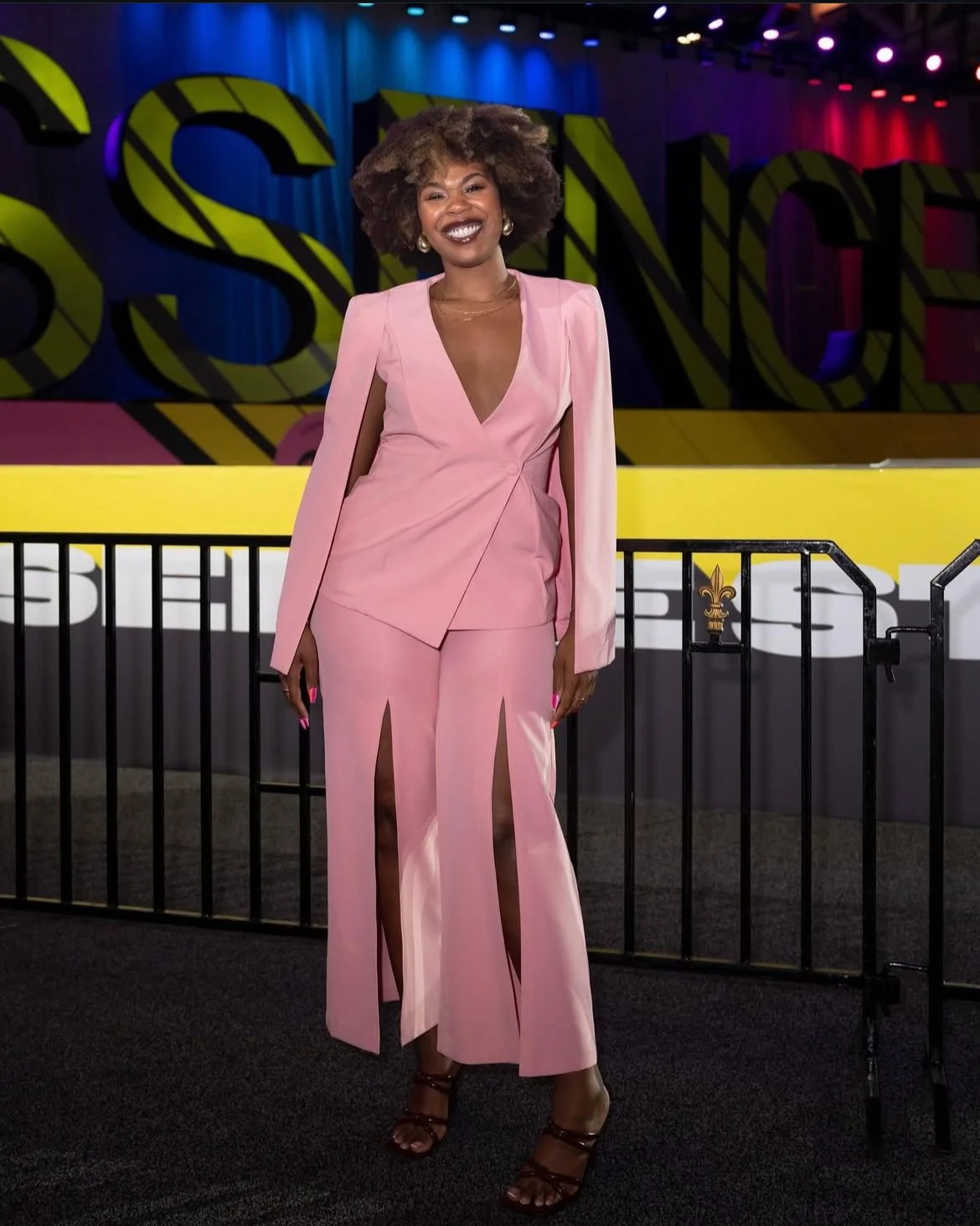Taryn Finley at Essence Festival (All rights reserved to owner)
Taryn Finley is a New York–based multimedia journalist and cultural commentator, previously serving as Senior Culture Reporter and Editor for Black Voices at HuffPost. She’s the previous co-hosts HuffPost’s “And That’s That!” podcast (also known as “I Know That’s Right”), where she dived into Black news, pop culture, and internet trends. A graduate of Howard University and Columbia University, Taryn began her career at outlets like Essence, The Root, Afro-American Newspaper, NBCUniversal, and Radio One. Over the past decade, her work spans written, visual, and audio formats, with a focus on stories that empower and uplift Black communities.
You graduated from Howard University in 2014. How did attending an HBCU prepare you for the real-world challenges and opportunities that followed?
TF: I want to start by saying I don't know if I would be living the life that I live without Howard. I needed an HBCU in such a crucial way.
I'm from Dayton, Ohio originally, and my world was very Black, especially from preschool to 6th grade. I went to Mulligan Stew Academy. It no longer exists anymore, but it was a school in Dayton that was created by this family of Black sisters who were educators that came together to start a school for Black kids. It was like a HBCU before I actually went to a HBCU. Such a foundational experience for me—seeing, knowing, understanding the beauty, the vastness, the rich history that we come with—because I'm going in school, and I'm seeing Mae Jamison, and Thurgood Marshall, and I'm learning about Venus and Serena Williams, and all of the Black history makers that were current and of yesteryear. I also went to a white Catholic high school because they had a good basketball program, and I had hoop dreams, I'm not gonna lie. This seemed like a good school to get me to that next place. I didn't know what college was gonna look like for me, but I knew that I was gonna get the hell out of Dayton.
Howard was the only option. But just in case, I applied for other HBCUs. I got into TSU, Hampton, and my safety school was actually Ohio University. That was the only non-HBCU I applied for because they had a good journalism program, but I wasn't trying to stay in the state.
Funny enough, I hadn't visited campus before I went there. My aunt lived in DC, so we would always go to DC during the summers to visit her. And the first impression of Howard that I had was when I was young and we were driving down Georgia Ave, and my aunt pointed to the left and she said, “Look, Taryn, that's Howard University,” and I think that's when they first got on my radar. And it's Black? Yes, sign me up. Howard really nurtured me and raised me to be the woman that I am today—the confident woman that walks into rooms and knows that she's supposed to be there. The woman that hustles and grinds, but also knows her worth and knows when to have moments of joy and slow down, and knows how to pour into community and let community pour into her. It's not just from an educational or professional standpoint. Howard is home for me. It’s a place, physically and spiritually, that I'm able to return to when this world tries to make me feel like I'm not enough.
Taryn Finley host at Essence Festival, LinkedIn and CultureCon. (Rights reserved to owner)
You understood the power of exposure early on—securing over four internships during undergrad. What drove you to be so intentional about gaining experience? For those looking to follow a similar path, what concrete skills or habits should they be developing right now to make themselves more competitive?
TF: To be honest, I didn't know a lot. I was so ignorant to how the world worked, how media worked, how all of it worked. I hadn't even stepped on Howard's campus until move-in day. And so, a lot of it, honestly, was just figuring it out and not being afraid to ask questions. I think the reason that I'm a good journalist is also the reason why I have found myself in the position that I am in—because I ask questions. I'm not afraid to look like I don't have all the answers, because I don't. I still don't, you know?
A couple of the internships that I've gotten were through cold emails and calls. I literally was sitting at my mama's house during winter break, like, “Okay, what am I about to do next semester, because I don't want to just go to class and sit on campus.” So I Googled, “What are the NBC internship program contacts?” and I emailed and cold-called a lot of people, and I didn't hear from a lot of people, but the folks that I did hear from ended up becoming pathways and stepping stones into me gaining more skills and getting more opportunity to do things.
When it comes to skills, I just think people should follow that hunger. What are you curious about? Because it's important to continuously make connections and don't be afraid. I hate the word "networking," and I feel like a lot of people do as well, because it just has a very transactional undertone to it. But it's important to make connections, talk to people, and just strike up a conversation. If you see somebody, you know, either in person or online or whatever, who's doing something interesting that you want to do—hit them up. Let them know that you appreciate or admire their work. Ask them if they are open to keeping in contact. Don't make it creepy. But be open, because people more than likely want to help you more than they don't.
“ Ask them if they are open to keeping in contact. Don't make it creepy. But be open, because people more than likely want to help you more than they don't.”
- Taryn Finley
Although you initially applied to a role at HuffPost while at Howard, it was through a career fair at Columbia University that eventually landed your first role. What insights did you gain about the fine line between rejection and timing through that experience?
TF: I applied for the HuffPost internship going into my senior year at Howard. Within 2 weeks, I got rejected. I'm like, “Okay, that's cute, my 10th rejection this year.” “Alright, bet.” But that wasn't supposed to happen because I ended up interning at Essence that summer, which was amazing. I interned with Maya Allen, Sylvie O'Bell, Priscilla Ward—amazing women who are doing phenomenal work in media today, who I still keep in touch with. Sylvia had just graduated from Columbia, so my mom, she was low-key pressing me about grad school, and I was like, “Mmm, I don't know girl. But if I do go to grad school, I'm gonna go to Columbia.” So I said to myself, “Let me take Sylvia to lunch to ask her, is it worth it?” We had that conversation, and I decided after listening to her, “Yes, I do think that this will help me skip some steps.”
When the career fair came around, Columbia was a one-year program. So in the spring, we’re about to graduate, and everybody's like, “Make connections, but don't expect to get a job.” Because I guess the percentage of folks who actually found employment through the career fair was small. But I guess I was an anomaly. I got in and I went straight to HuffPost. That was literally my first pre-scheduled interview for the day, and it just so happened that they were looking for Black Voices interns, and it also just so happened that the associate editor at Black Voices had just left. So me going in and trying again and having that good timing ended up parlaying me into a fellowship that I started literally a couple of weeks after graduation.
It was supposed to be 6 months. I worked for 3 months, and then got promoted to Associate Editor because my work was good and because the need was there. It also helped that I had another offer, and so they were like, “Alright, you know what, cool, come on.”
Taryn attends the TIME’s Impact Dinner honoring The Closer’s List (Rights reserved to owner)
Fast forward your career has grown beyond just writing. Today, you’re moderating powerful conversations, hosting on TV, and previously leading your own podcast. What would you say to the younger “you”—the little girl whose mom used to call her the next Oprah?
TF: “Girl, you not the next Oprah, you Taryn. You're Taryn Finley, and there's power in that. You can look at other people's journeys and learn lessons from them. But know that you yourself are enough, and never think otherwise. You're setting a new standard, and you may not know that now, and you may not always believe in yourself in the process. And you may have anxiety that is crippling at times, to the point where you feel like you can't go on. Like you want to quit? But girl, do not quit, because you—your voice, your talent, your experience—is enough, and it will always be.”
What role does representation play in helping the next generation believe that their dreams and aspirations are truly possible?
TF: What's that saying? “If you can see it, you can be it.” I truly do believe that. Of course, there are some anomalies. I think about the first all the time—the curse of being the first—and how that’s a big burden to carry for anyone in those situations.
I think, specifically, you have to be your own representation. And you have to almost visualize by seeing it in your mind and in your heart—what you don't physically see. Representation is so important, but I think about all of the areas that we have yet to touch. All of the dreams that have yet to be realized, all the inventions that have yet to be created, and I don't want to negate the importance of representation. But I also don't want to limit us to feeling like we can't be the first.
Want to hear more amazing stories like this? Check out our “More of Us” series! If you want to connect with Taryn and support the work she is doing, follow her on social @_tarynitup and get in touch with her by clicking here.



